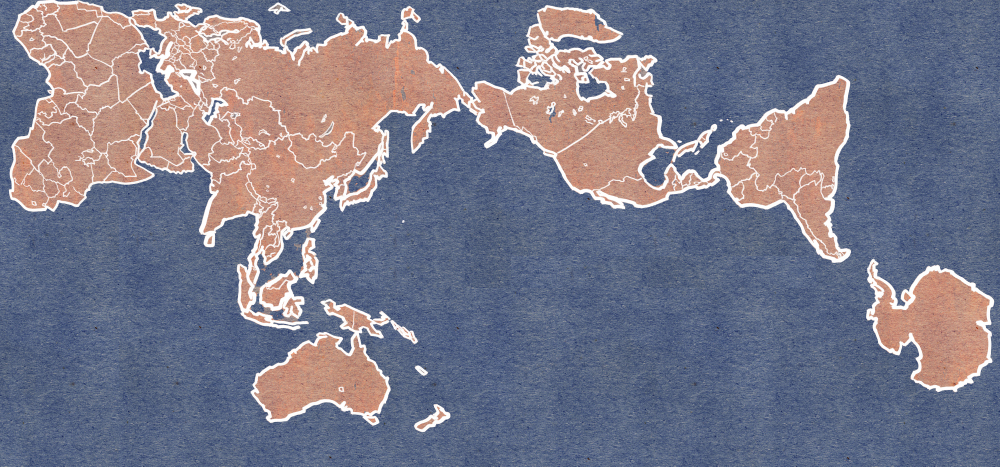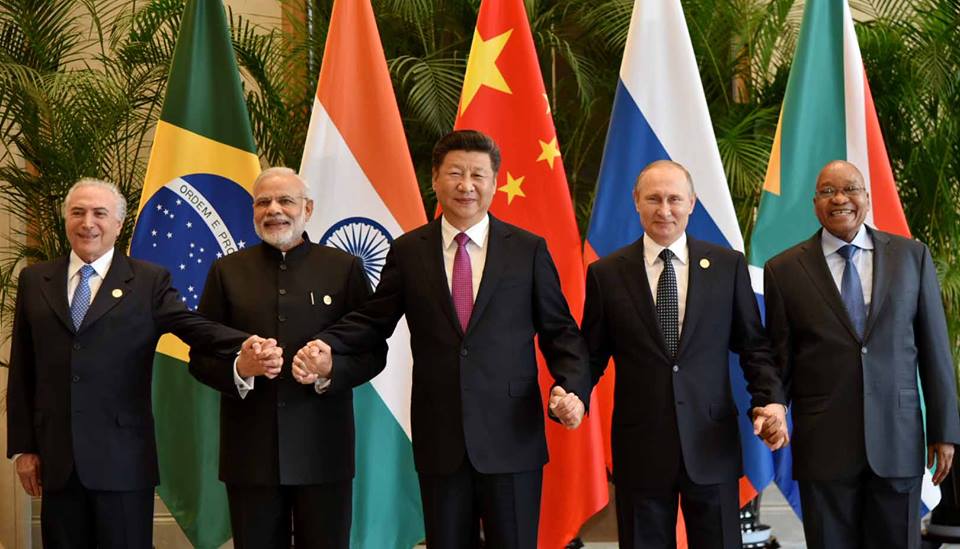The text of the speech delivered by ORF Vice President Samir Saran at the inauguration of the 9th BRICS Academic Forum in Fuzhou, China.
Excellencies, colleagues and friends, members of the academic community and think tankers from the the BRICS countries..

Warm greetings from the Indian academic delegation. We are delighted to be here and look forward to two days of debates, discussions and the opportunity to renew old friendships and begin new ones. On behalf of our team, I thank our hosts, the China Council for BRICS Think Tank Cooperation for the wonderful setting and immaculate arrangements, and for all the work that has gone into putting this together.
We, the BRICS Think Council met this morning to take stock of all that transpired under the Indian leadership of BRICS in 2016 and to deliberate on what we would like our governments to pursue under the Chinese Presidency. We will, at the end of the two days, put forward an outcome document that will capture our wish list flowing from the conversations that will happen here. Each of you — through your presentations and interventions will co-author this document — so I encourage all to participate vigorously in the debates that lie ahead.
This is a special year. We are meeting at the 9th Academic Forum, and at the end of this year, we will be completing 10 years of our cooperation.
The BRICS next year will be turning 10 as an institution.
As we complete the first decade of this partnership, it is perfect moment to look back and look ahead. It is perhaps time to restate the BRICS agenda, relocate the role of BRICS in the world of today — that is changing fast — and reaffirm the organising principles that brought us together.
The BRICS agenda and its role must continue to be shaped by two words: “change” and “alternative”.
We came together to change the lives of millions in our countries, and in countries around us, that have been left out of the economic mainstream and have been left behind. Their lives must change, their aspirations need to be catered to. We must consider their future to be ours. This ambition is now encapsulated in the SDG Goals and other development challenges that humanity has accepted as being vital. BRICS must lead this process with their energy and leadership, with their experience and resources and with compassion — a changed development paradigm must be at the core of the BRICS agenda for the next 10 years.
The second word we must always focus on is “alternative”. We must achieve this change through alternate pathways, one that are inclusive, democratic, participatory and sustainable. A BRICS counter-narrative, an alternative must be crafted amongst the academic community. We are unlikely to change the world if we follow the same pathway that the developed world discovered. Be it healthcare or wellness , be it migration policies, be it the way we organise our cities and fuel them, educate our people and unleash their creative energies, we will need to discover and document BRICS solutions that will offer a counter point to the knowledge regimes that define the world of yesterday. And this must be a central quest of the BRICS academic community.
As we move towards being this force of positive change, we will need to create more institutions and frameworks to make it happen. The New Development Bank, the Contingency Reserve Arrangement are just the beginning. The BRICS institutionalisation would be a pre-requisite for its success. In 2016, the Indian Presidency recognised this to be the single most important aspect of BRICS development — it proposed research institutions, rating agencies, bodies that would strengthen trade and commerce and frameworks that would deepen intra-BRICS cooperation. This project must indeed be continued under the Chinese leadership as we move to South Africa in 2018.
I mentioned that we need to relocate BRICS in the new world. Indeed it is a new world, since we last met in New Delhi, change has swept through US and Europe and more change is coming. Some of the assumptions of the past decade around trade and globalisation may no longer be valid and nationalism and petty politics seems to be a secular phenomenon.
The BRICS leadership is needed at these times.
It seems BRICS will need to be the architects and new champions of a new format of multilateralism and indeed of globalisation 2.0.
As we infuse energy and leadership into these two processes, revitalise global trade, global financial flows, movement of people and ideas and indeed challenge the disruption to the process of global integration, it will require all of us to make a new case and a new blue print — where our individual roles and collective responsibilities will need to be reaffirmed. We will need to navigate this process through our own political systems, something that clearly is not easy for some of us.
A quick note of caution, even as we witness power vacuum and leadership gap, we must resist the temptation to fill those spaces with more of the same, The hegemonic structures and actors must not be replaced by a new hegemon. The paternalistic political structures must not be now owned by a different country or group of countries, otherwise we will not be agents of change and creators of counter-narratives. We will remain the servers of status quo and prisoners to power.
It is time to restate the organising principles of BRICS as I see them. Two factors more than any other have allowed us to come together and work together over the past 10 years.
- Respect for sovereignty of each other, and those around us, and,
- The common demand for pluralism and democracy in the conduct of international affairs.
BRICS has always respected sovereignty and sovereign equality. It is only here at BRICS that irrespective of our GDPs and military might, each of us have equal voice, equal voting rights and plural discursive space. We have respected each others’ sovereign concerns admirably and we have served the cause of democracy in the conduct of international relations well. We have to preserve and re-serve these organising principles.
Even as we all evolve in our own ways, these must remain the core principles for BRICS. There have been some headwinds recently that have drawn my attention to these aspects. Since we are among friends, I should unhesitatingly draw your attention to these — if we lose this ethos and ethic — we lose the BRICS.
I thank our hosts once again and look forward to two days with you. Namaste.
Samir Saran
The views expressed above belong to the author(s).
The text was originally on Jun 12 2017 by the BRICS Institute, Observer Research Foundation, based in New Delhi, India. The original text is available at http://www.orfonline.org/expert-speaks/time-restate-organising-principles-brics/
The text is reproduced here with the expressed permission by the author. The author retains all copyrights.



